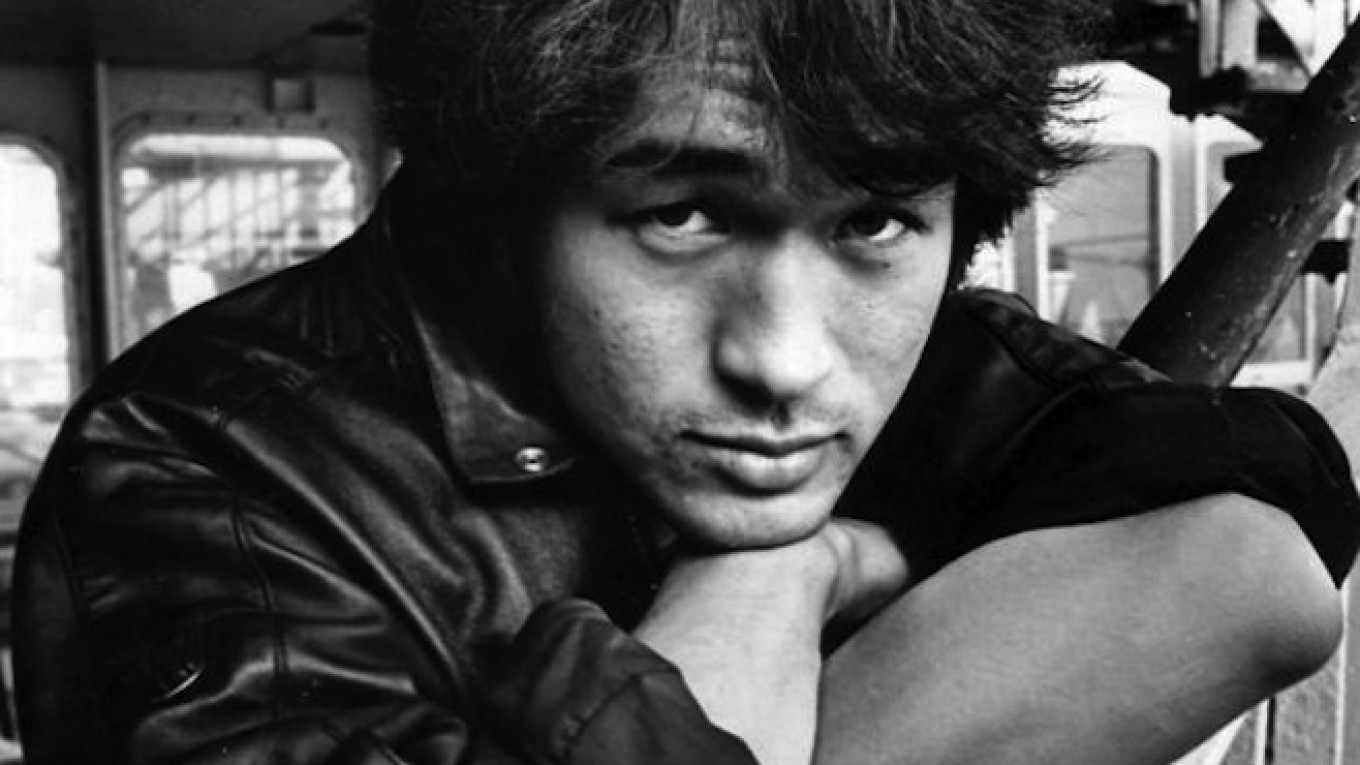Editor's note: This archive article was first published on June 25, 1999.
Before his appearance on stage in the late '80s, the Russian music world had never seen as mysterious a figure as Viktor Tsoi.
A legend in his lifetime, Tsoi would have turned 39 on June 21 but for his premature and mysterious death in a car crash on a Latvian highway in 1990. Even though this is not a kruglaya data, or round date, it is an opportunity for me to recall the singer, a man who changed my life and those of hundreds of thousands of people in the former Soviet Union.
Korean by blood, Tsoi was born to an engineer and a physical education teacher in Leningrad. He trained as a craftsman in a local school, but turned into a self-made musician, playing rock and punk with a group of his mates. A friend of many famous music personalities, such as Boris Grebenshchikov, he achieved national fame as the leader of his own band, Kino.
With his trademark crossed arms and black outfits, and the cat-style movements of an Oriental warrior, Tsoi became my first and, maybe, last music idol.
I first heard his songs in Bulgaria. His lyrics were simple, but they contained the existential philosophy of an outsider: "If you have a cigarette pack in your pocket, that means a pack in your pocket, that means nothing is bad today."
See our Photo Gallery: Remembering Soviet Rock Martyr Viktor Tsoi 24 Years After His Death
When he died, it was the first time I ever saw Russian police officers weep. Music critics started analyzing his mostly pessimistic songs, trying to find a hidden sense or a message. But they were wrong. Tsoi had nothing to hide from them. One of his most famous songs, "Changes, we are waiting for changes," became a national hit in the late '80s. But, according to Tsoi, there was no profound statement hidden here. By the word "changes," or peremeni in Russian, all he meant were the shkolniye peremeni, or school vacations.
This wasn't a pose. Tsoi was never associated with politics or consumer culture. According to his friend, the rock musician Konstantin Kinchev, "he passed away like a fresh apple." Later I understood what he meant by this. If my idol were alive today, it would make me sick if they had him advertising chewing gum or sitting in the State Duma.
A symbol of his generation, Tsoi predicted his early death long before it happened. In his first and last cinema role in "Igla," or "The Needle," he plays a man who comes to his native city to save his ex-girlfriend from a drug addiction. At the end of the film, he dies, knifed on his way home.
For more coverage of Viktor Tsoi, search the Moscow Times archive.
A Message from The Moscow Times:
Dear readers,
We are facing unprecedented challenges. Russia's Prosecutor General's Office has designated The Moscow Times as an "undesirable" organization, criminalizing our work and putting our staff at risk of prosecution. This follows our earlier unjust labeling as a "foreign agent."
These actions are direct attempts to silence independent journalism in Russia. The authorities claim our work "discredits the decisions of the Russian leadership." We see things differently: we strive to provide accurate, unbiased reporting on Russia.
We, the journalists of The Moscow Times, refuse to be silenced. But to continue our work, we need your help.
Your support, no matter how small, makes a world of difference. If you can, please support us monthly starting from just $2. It's quick to set up, and every contribution makes a significant impact.
By supporting The Moscow Times, you're defending open, independent journalism in the face of repression. Thank you for standing with us.
Remind me later.






